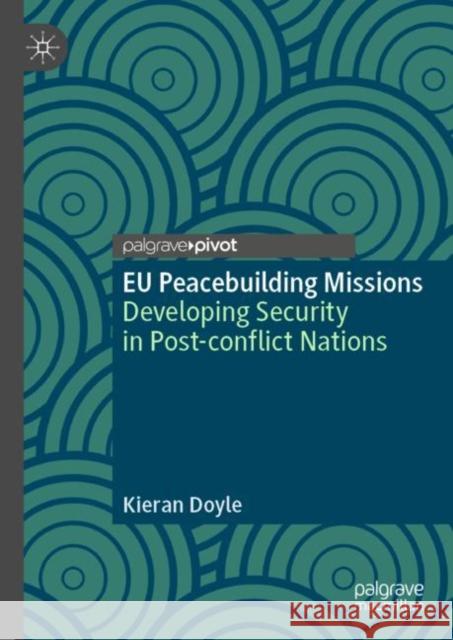EU Peacebuilding Missions: Developing Security in Post-conflict Nations » książka
EU Peacebuilding Missions: Developing Security in Post-conflict Nations
ISBN-13: 9783031187681 / Angielski / Twarda / 2022 / 159 str.
This book explores the EU's approach to peacebuilding and questions the EU global role as crisis manager and capacity builder. It highlights the significant contributions of the EU to civilian peacebuilding and also critically evaluates the activities of the EU Common Security and Defence Policy (CSDP) within their rule of law and human rights peacebuilding missions. It draws on the author's twenty years of experience working on CSDP and EU defence matters including his research on EU police missions in Africa and Middle East. It exposes emergent tension between peacebuilding in its neighbourhood and security issues. It examines the practice of EU peacebuilding including performance of its missions and how deployed personnel can professionalise their diplomatic (mediation, negotiation and dialogue facilitation) capacity to fully realise the potential of missions and exploit opportunities for expanding the vision of peace. It formulates convincing policy recommendations for the future planning of EU external relations in post conflict environments and offers valuable insights into how to connect with people and communities in the aftermath of conflict.
This book explores the EU's approach to peacebuilding and questions the EU global role as crisis manager and capacity builder. It highlights the significant contributions of the EU to civilian peacebuilding and also critically evaluates the activities of the EU Common Security and Defence Policy (CSDP) within their rule of law and human rights peacebuilding missions. It draws on the author's twenty years of experience working on CSDP and EU defence matters including his research on EU police missions in Africa and Middle East. It exposes emergent tension between peacebuilding in its neighbourhood and security issues. It examines the practice of EU peacebuilding including performance of its missions and how deployed personnel can professionalise their diplomatic (mediation, negotiation and dialogue facilitation) capacity to fully realise the potential of missions and exploit opportunities for expanding the vision of peace. It formulates convincing policy recommendations for the future planning of EU external relations in post conflict environments and offers valuable insights into how to connect with people and communities in the aftermath of conflict.











